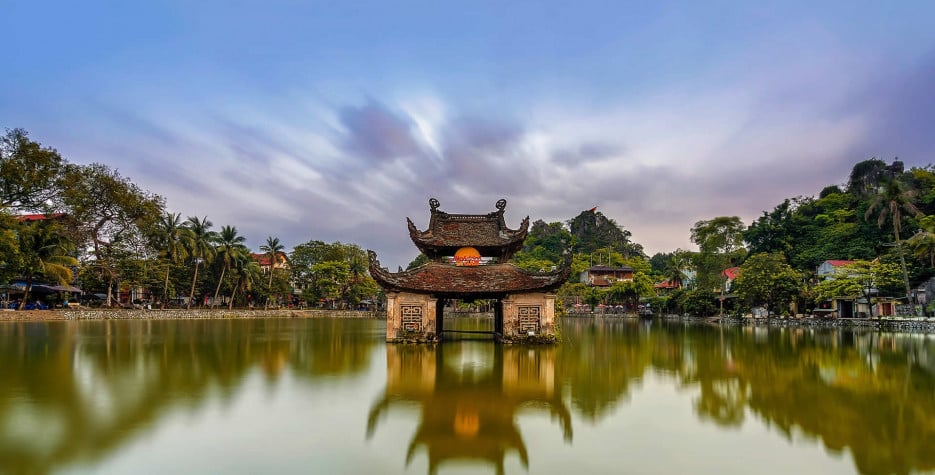When is the Hung Kings' Temple Festival?
The Hùng Kings' Temple Festival (Vietnamese: Giỗ Tổ Hùng Vương or lễ hội đền Hùng) is held each year from the 8th to the 11th days of the third lunar month in honour of the Hùng Kings and their role in shaping the nation.
The main festival day is observed on the 10th day of the month and since 2007 this has been a national holiday in Vietnam.
History of the Hung Kings' Temple Festival
The official name of the festival is 'Death Anniversary of the Hung Kings'. However, the date does not mark the death of any specific Hung King but honours their contribution to Vietnam as the traditional founders of the nation and the first emperors.
The first Hùng king was Kinh Dương Vương, who came to power in 2879 BC. He ruled an area covering what is now North Vietnam and part of southern China. The area was called Văn Lang and is regarded as the first nation of the Vietnamese people. Dương Vương founded the Hồng Bàng Dynasty, whose descendants ruled Vietnam until 258 BC.
Ruling over Vietnam for 18 generations, the Hung Kings taught locals how to grow wet rice. They chose Nghia Linh Mountain, the highest in the region, to perform rituals devoted to rice and sun deities to pray for good harvests.
How is the Hung Kings Temple Festival celebrated?
Each year offerings are held simultaneously at over 1,400 Hung Kings temples across Vietnam. The key ceremony takes place at the Hung Temple on Nghia Linh Mountain in Phu Tho Province, some 85km northwest of Hanoi.
Over five million visitors will travel to the province to see the festivities. A procession starts at the foot of the mountain and stops at every temple on the ascent before pilgrims offer prayers and incense to the Hung Kings when they reach the Hung Temple.
UNESCO Intangible Cultural Heritage of Humanity
The worship of the Hùng kings in Phú Thọ was recognised in 2012 on the UNESCO Representative List of the Intangible Cultural Heritage of Humanity.


